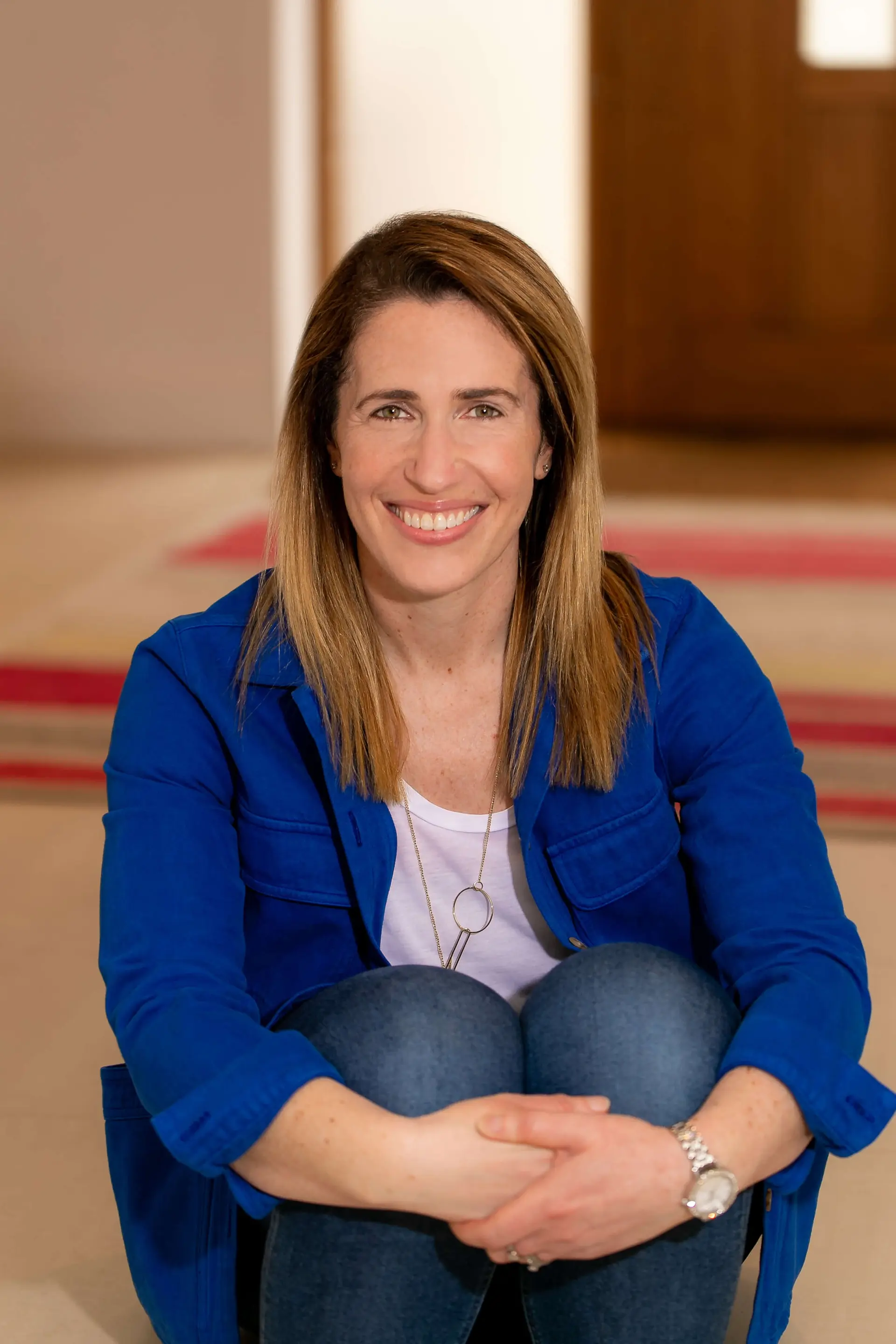Georgina Sturmer is a counsellor in Hertfordshire and online
What attracted you to become a therapist?
I've always loved human stories. Not the happy-ever-after fairytales. But the real human connections and relationships that are all around us. I'm the one sitting on a bench, creating an invented back-story about everyone that passes me by.
I took a career break to start a family, and I became a volunteer for Home-Start. I spent time supporting a parent each week, helping them out and offering a listening ear. That's where I learnt about the value of just listening to someone. Not butting in with my opinions or advice or ideas. But giving someone the space to talk.
There was a counsellor on the team who suggested that I consider counselling training. I signed up for a short Introductory course, and I was hooked.
Where did you train?
I spent four years training to be a counsellor at West Herts College. I completed the Certificate in Counselling Skills, then the Certificate in Counselling Studies and finally qualified with a Diploma in Integrative Counselling.
Can you tell us about the type of therapy you practise?
I'm an integrative counsellor. I work from a person-centred base, with an interest in attachment and Transactional Analysis.
I'm always happy to chat in detail about what this means. But essentially my training has covered a range of different theories about what makes us tick, and how we can overcome challenges in our lives. I work hard to support my clients to feel safe and comfortable to explore their thoughts and feelings with me.
How does integrative counselling help with symptoms of anxiety?
Everyone's experience of anxiety is different.
In counselling we can be curious about this together. We can look at how you describe your anxiety, what emotions are attached to it, where you feel it in your body, and what events or relationships might trigger it for you.
We can look at everyday coping strategies to help you to manage your daily life.
But most importantly we can take the time to look at the root causes of your anxiety, and how you can overcome it to feel more at ease with yourself.
What sort of people do you usually see?
I am qualified to work as a counsellor with adults over the age of 18.
I work primarily with women, and I specialise in supporting them through the challenges that they may face during different parts of their life, including anxiety, depression, relationship difficulties, pregnancy, miscarriage, infertility, postnatal depression, domestic abuse, trauma, and loss.
I help them to understand what's going on for them, and how they see themselves. We look at their life experiences and relationships to understand why they feel the way that they do. We work together to reframe how they see themselves and how they deserve to be treated.
Together, we challenge fears and negative thoughts when they make life difficult.
Have you noticed any recent mental health trends or wider changes in attitude?
Since the Covid-19 pandemic I have noticed rising levels in anxiety across society in general. It feels as if every possible social group has been touched by this. I'm specifically noticing a rise in social anxiety and health anxiety, which seem to be in response to the messages that we received as a society during the pandemic.
There has been a marked impact on those who became parents during the pandemic too, with heightened worries around the health and safety of their children.
What do you like about being a therapist?
I love getting an insight into someone's personal world, their feelings and beliefs, and I consider it a privilege of my role. I have a real passion for helping women, and mothers in particular, to build their confidence and to challenge destructive relationship patterns.
I've had counselling myself and I know how powerful it can be.
What is less pleasant?
I would love to have a magic wand but therapy isn't really like that. Sometimes our work can feel challenging and sticky - but that can also be when it is at its most rewarding.
How long have you been with Welldoing and what you think of us?
I joined Welldoing in March 2023 and I've enjoyed having opportunities to write articles for the site.
I've written on feeling numb, and on boundaries in therapy.
Do you ever suggest books or apps to clients?
The Calm app can be very helpful.
I do have a few favourite books that I sometimes recommend to people who are interested in counselling. Lost Connections by Johann Hari and Maybe You Should Talk to Someone by Lori Gottlieb.
What you do for your own mental health?
I walk my dog, Millie, and try to make sure that I keep time in my diary for exercise.
You are a therapist working online based in Hertfordshire . What can you share with us about seeing clients in this area?
I work with clients from across the UK. I love the fact that working online makes my practice accessible to all.
What do you wish people knew about therapy?
That if you find the right therapist for you, at the right time in your life, then the results really can be life changing.
What did you learn about yourself in therapy?
I learnt to understand myself better, how I felt about myself, and how I built relationships.

